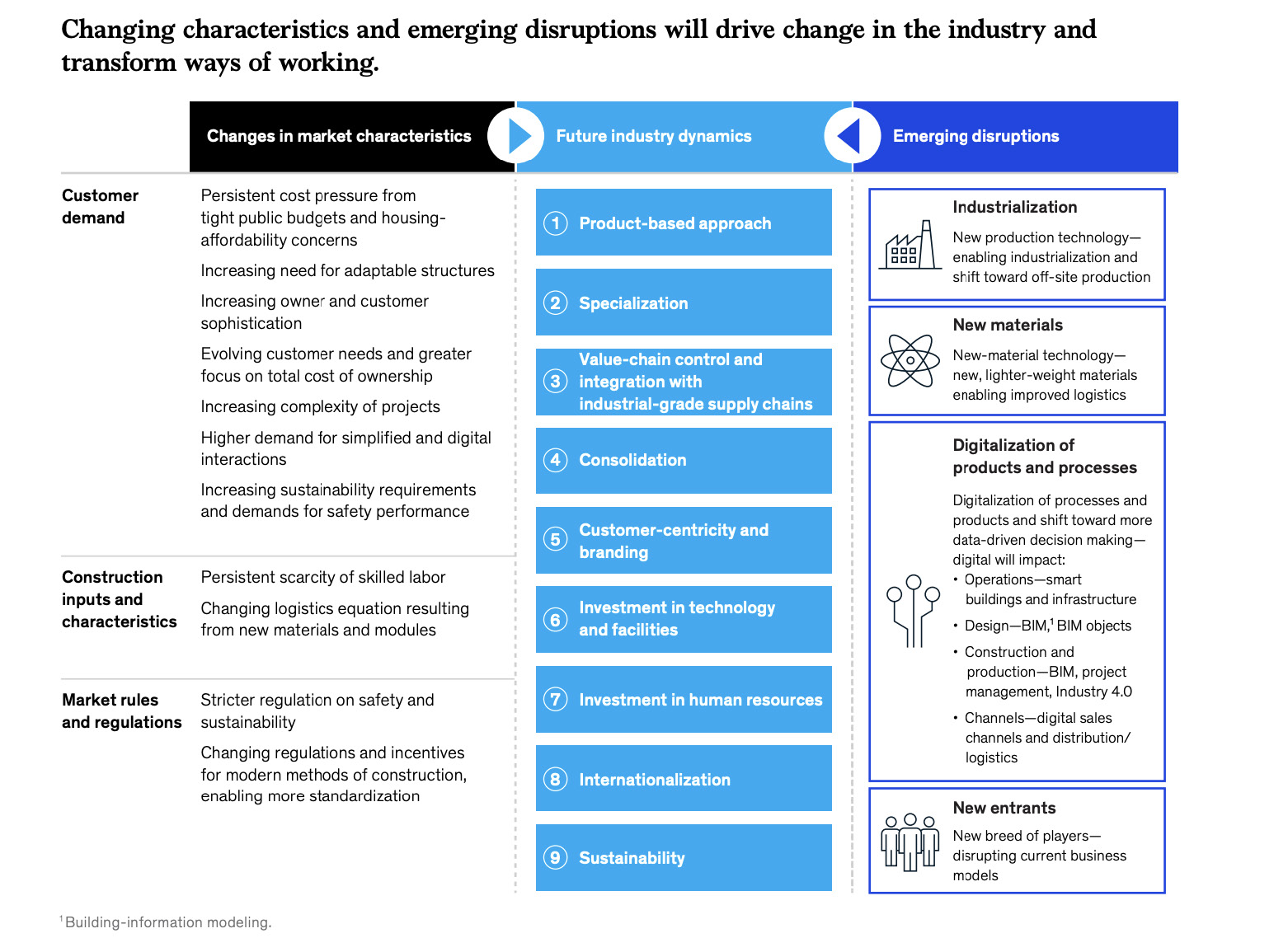The construction industry is constantly evolving, a large part of this can be attributed to the investment boost in more sophisticated software. The implementation of construction software and innovative technologies covers all stages of the construction lifecycle, from project initiation to the on-site activities and the complementation stage. According to research by Oxford Economics, at $12 trillion in 2023, the architecture, engineering, and construction (AEC) sector is one of the largest industries in the world, but historically it’s been among the slowest to digitise and innovate.
In the age of rapid digitalisation, the need to invest in construction technology is recognised by housebuilders, housing associations, principal contractors and subcontractors as necessary to streamline procurement processes, execute contracts and manage their day-to-day business in an effective and efficient manner. However, the high initial investment required is seen as a challenge.
While the industry sees immense benefit in digitalising operations and adopting construction technology – with 72% of contractors stating that digital transformation is a key priority, only one in three revealed they invested less than 3% of their annual turnover in digital. This is due to the complexity and fragmentation of the industry, especially considering the various stakeholders involved and the time and investment required.
According to digital publication PYMNTS, ‘Construction companies are undergoing a leadership transition, with second-generation and beyond leaders taking charge and introducing technology to their formerly more traditionally operated businesses,’ recognising the value of leveraging technology to stay competitive and scale their businesses.
New construction technologies and software include virtual and augmented reality, drones, 3D laser scanner, 4D simulation, Building Information Modelling (BIM), 3D printing, online portals, mobile applications and digital workflows/reporting.
Changing characteristics and emerging disruptions
According to a report by management consultancy firm, McKinsey & Company, there are three key areas of changes in the construction market characteristics which will transform the ways of working in the industry: customer demand, construction inputs and characteristics and market rules and regulations.
Courtesy of McKinsey & Company, the below table highlights the changing characteristics and emerging disruptions and how they will impact the future of the construction industry looking at industry dynamics and emerging disruptions.

Construction – the ongoing battle to digitise
While construction businesses recognise the need to adopt digital technology, a main barrier is the need for up-front investment, even if the long-term benefits are significant. However, it is critical for companies to embrace digitalisation and ensure they don’t fall behind in the competitive market. By not adopting digital technology, companies can risk:
Productivity Problems
One of the most evident signs of the industry’s resistance to change is its productivity rate. According to the 2021 Census study, the UK construction industry’s productivity levels have consistently remained below the average of the overall UK economy’s productivity. This isn’t just a statistic on a paper; it translates to real-world issues like delayed projects, budget overruns, and unsatisfied stakeholders.
Missed Opportunities
By sticking to old, time-consuming methods, without innovation, the construction industry misses out on many benefits digital adoption offers, including automated processes, data-driven decisions, and streamlined operations are just a few of the advantages that come with digital adoption. The lack of digital transformation leaves room for inefficiencies to creep in which waste both time and money.
Modern Tech solutions to construction:
Digital transformation allows construction companies to tailor which services to digitalise processes and operations depending on their needs. A few means through which day-to-day operations can be digitalised to enhance efficiency include:
Software solutions within construction include schedule management, construction project and cost controls, design and construction coordination, construction document management, enhanced supply chain softwares,carbon reduction software for housing associations and construction payment management.
A word from our CEO and co-founder
“In a highly digitised world, construction companies are grasping the need to invest in technology. Software companies like clixifix® can offer solutions to improve the efficiency of reporting, communication, accountability and customer satisfaction. The need for construction companies to understand the implementation and functionality of such software will likely force companies to either educate current staff or drive a need to employ staff with a strong understanding of construction technology. This will create a shift in employment criterias and priorities within the business.”
Conclusion
It is evident that having a new generation of construction companies that embrace technology, especially software solutions will undoubtedly create a shift. As one of the least digitised industries, the construction industry will have to sooner rather than later invest in software that will financially and functionally benefit their business and increase efficiency. The integration of software is inevitable, it all depends on whether a business wants to jump on board or fall behind their rivals.
Fancy a quick demo see how the clixifix® platform could improve your business?
Fill in the form below and a member of the team will be in touch.